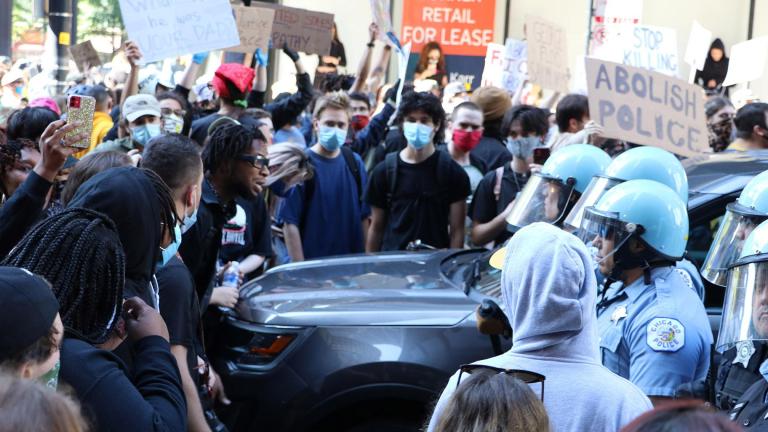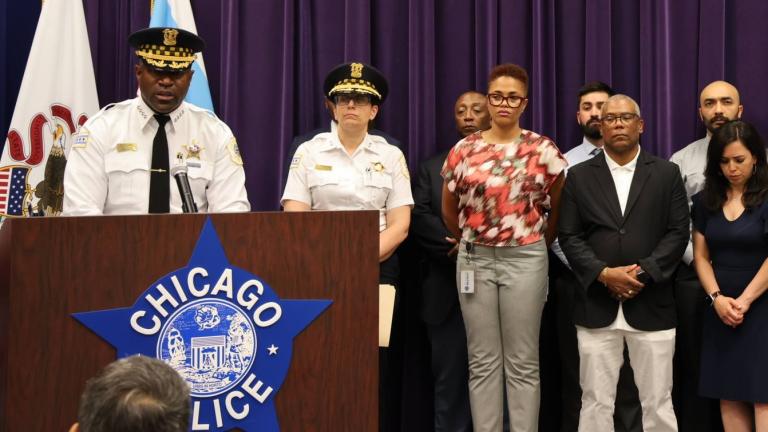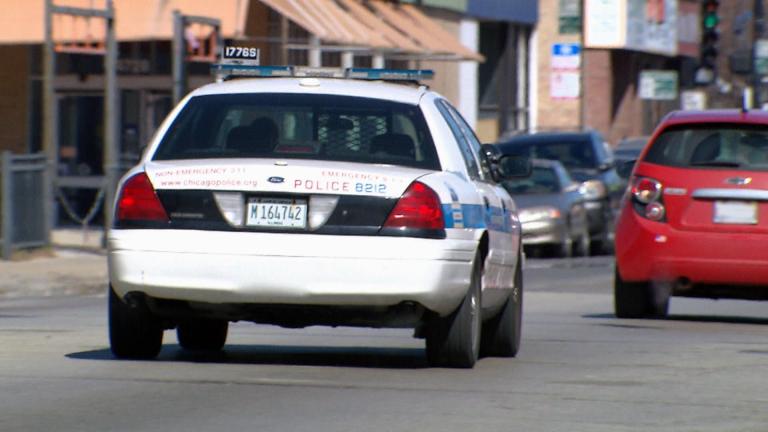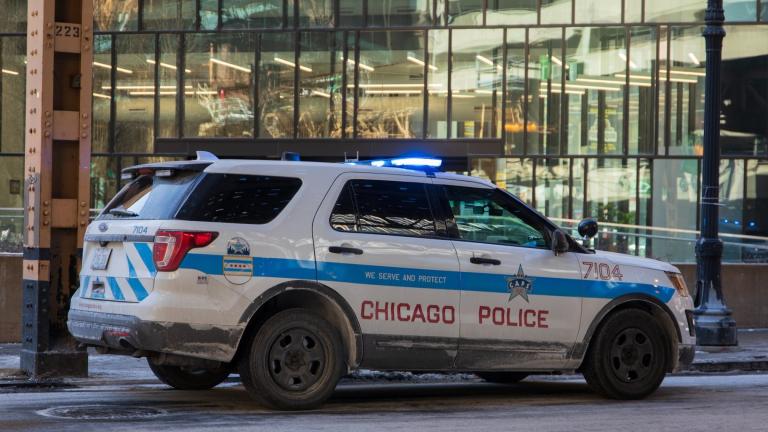Video: Illinois Attorney General Kwame Raoul appears on “Chicago Tonight” via Zoom on June 24, 2021. (Produced by Evan Garcia)
Attorney General Kwame Raoul renewed his call Thursday for Chicago officials to ban no-knock warrants and put tighter restrictions on officers to prevent mistaken raids like the one that left Anjanette Young handcuffed and pleading for help in February 2019.
The department’s newly implemented search warrant policy still has some “shortcomings,” Raoul told WTTW News.
In addition to a ban on allowing officers to serve a search warrant without announcing their presence, more accountability is necessary to protect residents whose homes are damaged by officers and more protections are needed for children who might be present during the raid, Raoul said.
Chicago Police Department officials implemented new rules for search warrants at the end of May after several months of delay, caused in part by objections raised by Raoul. The attorney general said Lightfoot’s initial proposal was insufficient and would not prevent what happened to Young from happening again.
“It moved in the right direction, but there are still some shortcomings,” said Raoul, who added that police who enter the wrong home should be required to leave immediately in an interview with “Chicago Tonight” Thursday. ”We’ve seen progress.”
The Chicago Police Department is only allowed to serve no-knock warrants in cases in which “there is a reasonable suspicion that knocking and announcing would be dangerous to the life or safety of the officers serving the warrant or another person,” and requires the approval of a high-ranking bureau chief.
Lightfoot has rejected calls from Raoul and others to ban no-knock warrants, saying that it would make it impossible for officers to protect Chicagoans from “dangerous people.”
But Raoul said a ban on no-knock warrants could be crafted in a way to allow officers to do their jobs — while protecting innocent bystanders and other law enforcement agents.
“Some people want to force it into a false dichotomy,” Raoul said.
The attorney general also echoed concerns from the American Civil Liberties Union of Illinois that the new policy was developed without meaningful input from Black and Latino Chicagoans.
“A robust community engagement process is necessary,” Raoul said.
Raoul said he is also reviewing the department’s new foot pursuit policy.
While the new policy took effect June 11, police officials will consider feedback submitted until July 15.
Any policy should also avoid that same “false dichotomy” at play in the debate over the search warrant policy and allow foot pursuits in the ”right way in the right circumstances,” Raoul said.
Changes to allow supervisors to terminate chases deemed unsafe as well as to keep officers together during pursuits are steps in the right direction, but more improvements are necessary, Raoul said.
As attorney general, Raoul is responsible for enforcing the consent decree that requires the Chicago Police Department to make significant changes to the way it operates after a 2017 investigation by the Department of Justice found that officers routinely violated the civil rights of Black and Latino Chicagoans.
“At the end of the day, this is an opportunity for real reform,” said Raoul, adding that the result will serve as a “demonstration project” for cities throughout the country attempting to reform their police departments.
The Department of Justice probe found that the lack of a foot-pursuit policy endangered officers and members of the public.
The “unfortunate reality” is that had city and police officials heeded that report and implemented a policy, the police shooting deaths of 13-year-old Adam Toledo and 22-year-old Anthony Alvarez after foot chases could have been prevented, Raoul said.
The fact that the city and police department “moved at warp speed” to implement a foot pursuit policy after the high-profile shootings proves the consent decree is necessary to restore constitutional policing in Chicago, Raoul said.
“That’s not how it should happen,” Raoul said. “It should be a comprehensive and deliberate process.”
Raoul’s criticism of the police department’s search warrant policy as well as the slow pace of the city’s compliance with the consent decree has made his relationship tense with Mayor Lori Lightfoot, who dismissed his criticism in March of the fact that the city met only 40% of the deadlines with a terse reminder that there is “a lot of work that still needs to be done at the state level.”
Raoul vowed not to allow that tension to prevent necessary collaboration.
“I’m optimistic, I’m hopeful,” said Raoul, who served on one of the working groups established by the Lightfoot-led Police Accountability Task Force in 2016, which was charged with crafting reforms in the wake of the police murder of 17-year-old Laquan McDonald.
Raoul said he was hopeful that the collaboration between his office and the mayor’s public safety staff on the search warrant policy could serve to “press a reset button” and usher in a new era of collaboration.
Raoul said he had hoped the mayor would propose reforms — like a foot pursuit policy — proactively, rather than retroactively, after a scandal or crisis, when she took office in May 2019.
“I started with high expectations,” Raoul said.
However, Raoul said Lightfoot inherited a department resistant to the reforms required by the consent decree.
“It is a difficult job,” Raoul said. “I appreciate that challenge.”
The consent decree and reform effort are designed to support and help police officers do their jobs, Raoul said.
“We most certainly are not anti-police,” Raoul said.








